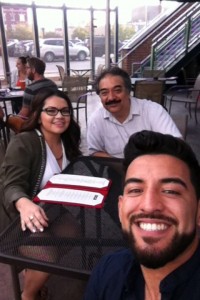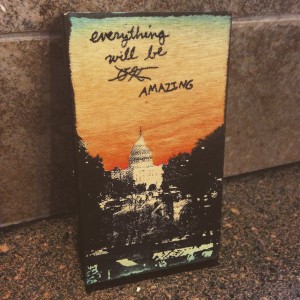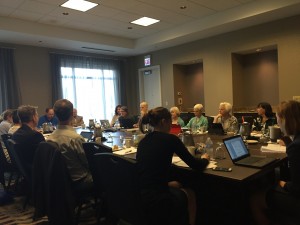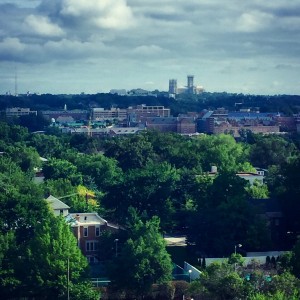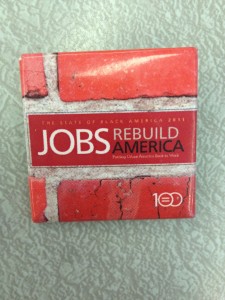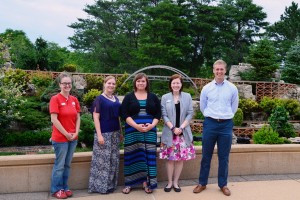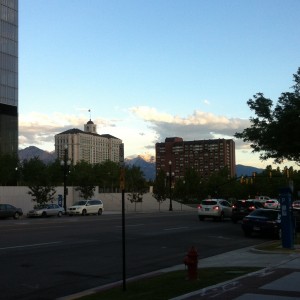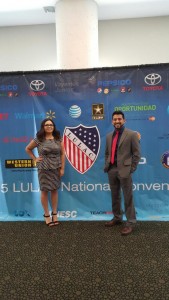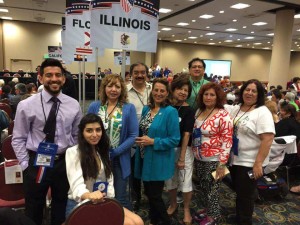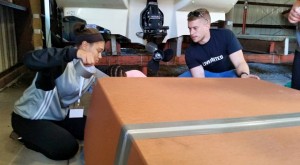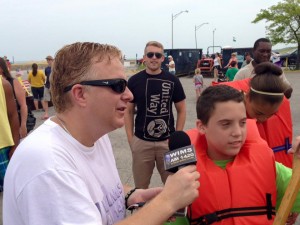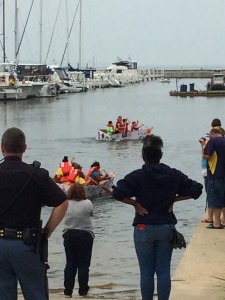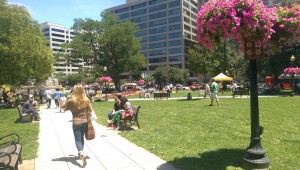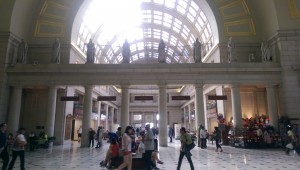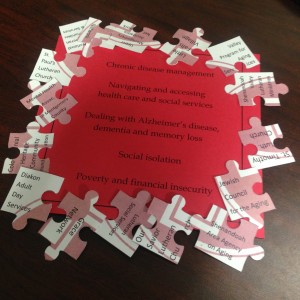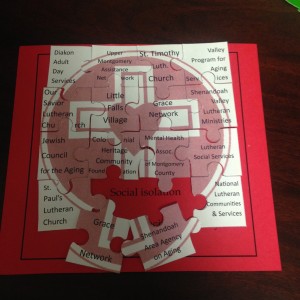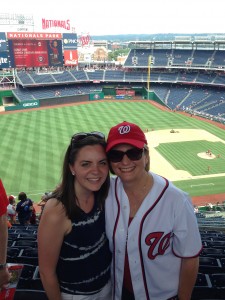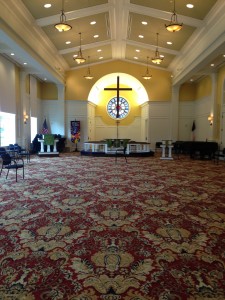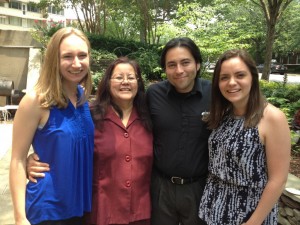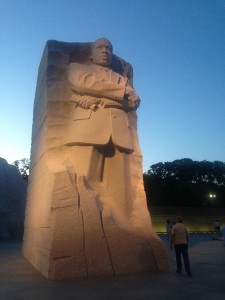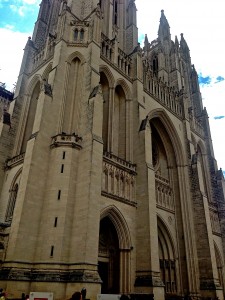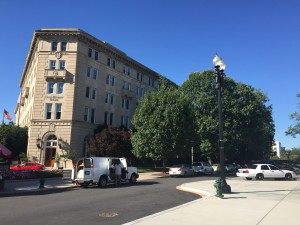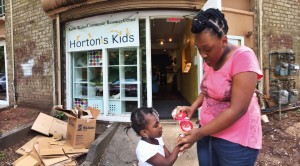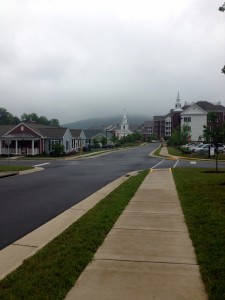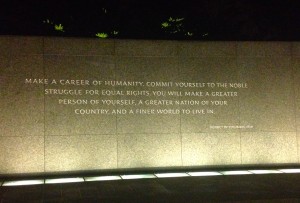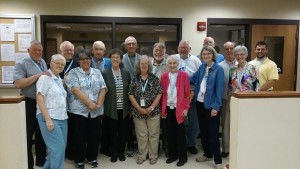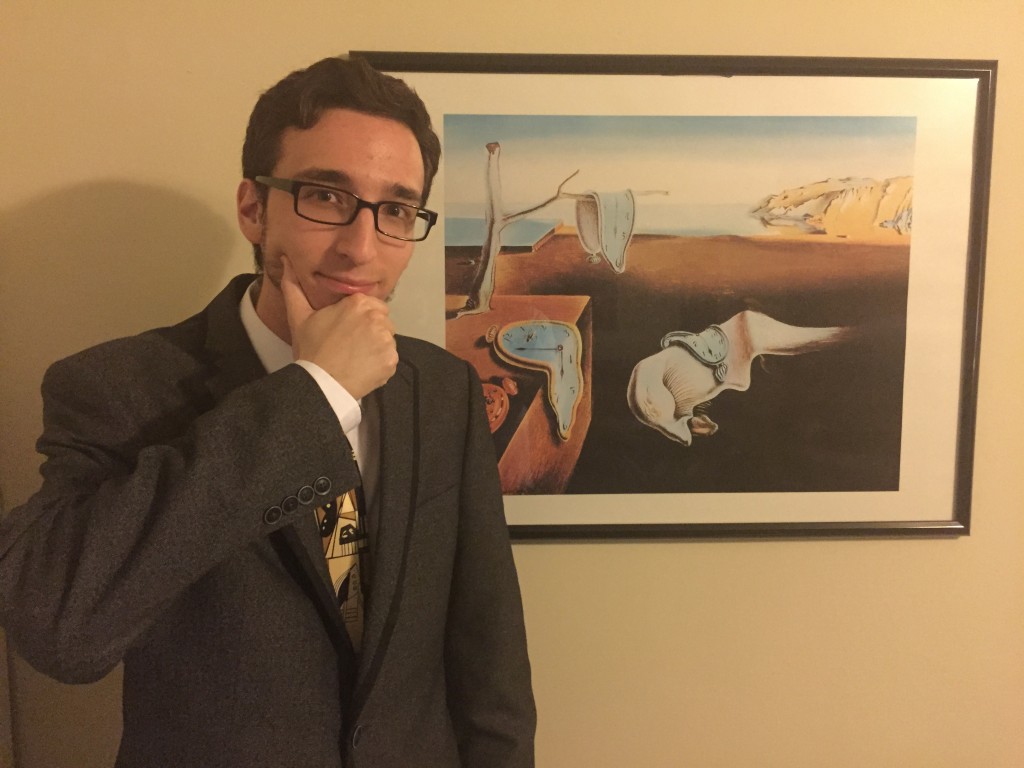
Tick. Tock. Tick. Tock.
Time
You can call it an idiom or you can call it a cliché, but I like to call “Time flies” a pithy adage. The two words, for me, is a truth in transience.
Inception
Four years ago in the summer of 2011, after graduating Valedictorian, Student Council President, and one of the two student speakers at commencement, from Michigan City High School in the spring, and before coming to Valparaiso University as a freshman in the fall, my mother, father, and I took a trip to Washington, D.C.
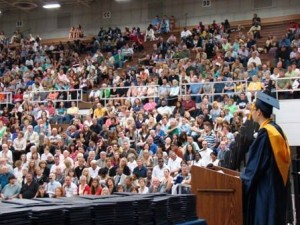
We stayed at the L’Enfant Plaza Hotel, “A family and pet friendly hotel.” The name of the hotel, comes from a man named Pierre, or “Peter,” L’Enfant, who was an architect and mastermind behind the design of Washington, D.C. It felt fitting, my first time in the District, to stay at a place named after the man that created the layout of our capital.
Our room at the L’Enfant Plaza Hotel was a room with a view, a view of the top of the Washington Monument, a five hundred and fifty-five foot tall obelisk done in an Egyptian revival style by architect Robert Mills. From a view from afar to a view up close, we went to the Washington Monument, as well as other monuments on the National Mall, including the Korean Memorial and the Lincoln Memorial. It is there, at the Lincoln Memorial, where my Valpo flag photo was taken. On one of the last few days for submissions, I entered the contest, and won!
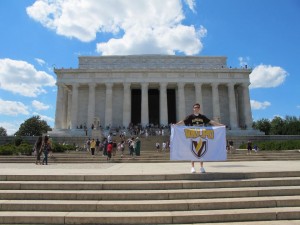
We explored the rest of what the National Mall offers, including the American History Museum, and the west side of the U.S. Capitol building. It is there, at the west side of the Capitol building, where another photo was taken of me with my Valpo flag. I did not know then that I would be back on the grounds of the United States Capitol, not as an incoming freshman student at Valparaiso University, but as a political science and history double major, a Christ College Honors College Scholar, the 2013-2014 Valparaiso University Student Body President, and as an intern for one of Indiana’s United States Senators.
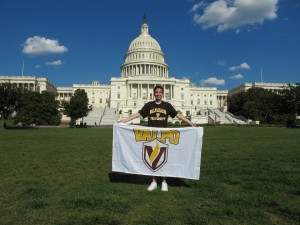
Intern
One semester ago in the spring of 2015, I interned for one of Indiana’s United States Senators, through the Lutheran College Washington Semester. A year before, I had no idea about the Valparaiso University Lutheran College Washington Semester until two of my friends from Student Senate, Finance Chairman Michael Peterson and Administration Chair Lucas Phillips, left Student Senate for a semester to participate in the LCWS 2014 spring semester.
In the same spring of 2014, current Congressman, Peter or “Pete” Visclosky, and former Congresswoman, Jill Long Thompson, came to the university to speak about “Leading the Beloved Community” on January 20th, 2014, which was Martin Luther King, Jr. Day.
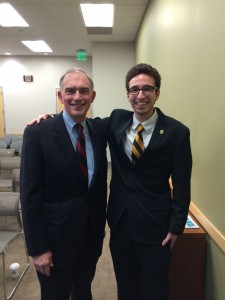
When the former Congresswoman, Jill Long Thompson, heard that I was President of the Student Body, she hugged me and said, “You’re on your way.” But, that’s not all she said. Looking me right in the eyes, she added, “You’ve got to go to Washington.”
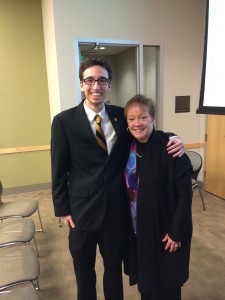
I took that as my sign to take a big step forward, into the Office of Indiana’s United States Senator, Joe Donnelly, as an intern, and to fulfill the charge of President John F. Kennedy, to “ask not what your country can do for you, ask what you can do for your country,” in the spring of 2015.
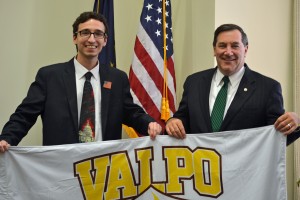
While I was there, I assembled 699 congressional and regional newspaper articles for press clips, answered 623 phone calls and compiled that information to respond to the constituents’ inquires, and gave 28 tours of the Capitol building, among other administrative, communicative, and legislative work, on the Press and Legislative Teams. I even came across the Democratic Party Majority Whip, Senator Dick Durbin, of my neighboring state of Illinois, who told me that “I was once an intern and now look where I am.” After asking him for a picture, he replied, “You know how to take a selfie?”
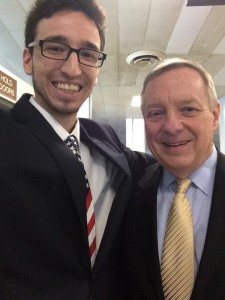
But, while I was there, I also thought about graduation, and contemplated what I would do after graduation. Another one of my friends, Nate King, participated in the Valparaiso University Calling and Purpose in Society Fellows program in the summer of 2014. I thought that this program, housed in the university’s Institute for Leadership and Service, was a good idea for the summer after graduation.
So, after a competitive and comprehensive process, consisting of an application, an interview, and an interview with the placement sites, mine being three thirty minute interviews back-to-back, I became an inductee into the Calling and Purpose in Society Fellows program, and was able to start fulfilling another one of President John F. Kennedy’s charges, that “Every man can make a difference, and everyone should try.”
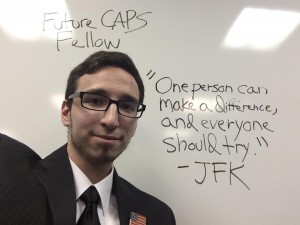
Intrigued by Kennedy, on my last day as an intern, I stopped back at the Senate gift shop, after seeing John F. Kennedy’s Profiles in Courage weeks before. After picking up presents, a couple of felt Senate coasters, for my parents, I picked up a copy of Kennedy’s Profiles in Courage, and bought it. After the plane took off from DCA to MDW, and after looking outside at the U.S. Capitol building, the Washington Monument, and the Lincoln Memorial, all lit up, I started reading Kennedy’s Pulitzer Prize winning book before graduation day.
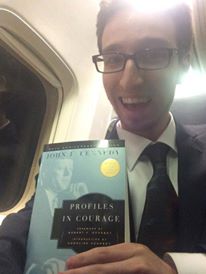
Graduation
Almost two months ago on May 17th, 2015, I graduated summa cum laude as a Christ College Scholar with a Bachelor of Arts in political science and history from Valparaiso University. On Graduation Day, I felt not anxiety, but anticipation, an anticipation of my participation in the Valparaiso University Calling and Purpose in Society Fellows program, and victory, a victory in being accepted into this prestigious program.
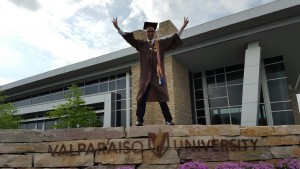
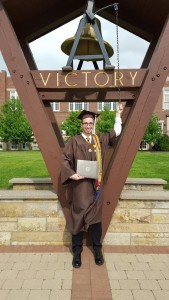
Departure
Over a month ago, my father drove my mother and me through drenching rain to Chicago, Illinois’ Midway Airport on Friday, May 29th, 2015. On this day, which would have been John F. Kennedy’s 98th birthday, I finished his book, Profiles in Courage, which I began when I left Washington, D.C. from DCA.
After a while, we had finally arrived and found a parking space in one of the garages. We took out the luggage, the two tightly packed suitcases, which were full of professional suit jackets, white dress shirts, classy ties, pressed dress pants, white t-shirts, khaki shorts, and blue jeans. Also in the suitcases were the bare necessities, such as a tooth brush, tooth paste, deodorant, and an electronic shaver. Once the suitcases were on the ground, I popped up the handles of both suitcases, one to my left and one to my right, and started walking toward the entrance to the luggage corrals, rolling the suitcases behind me.
When we entered the entrance, I remembered the last time that I was there. A few weeks earlier, my parents picked me up from the airport after my spring semester in Washington, D.C. This time, however, it would be where I left them. After passing the luggage corrals, riding up the escalator, and getting my boarding pass, it was time to say goodbye. I hugged my mother and father underneath a sculpture of an amalgam of hundreds of miniature plane figurines that formed the shape of a bird. My mom and dad were letting their baby bird flap its own wings now. I departed from the Midwest in the late afternoon.
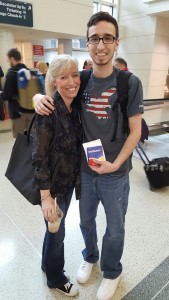
Arrival
I arrived at the East Coast in the early evening. As my airplane flew past fluffy, cauliflower clouds, I dreamed of what the summer had in store for me. As I continued peering through the tiny window of my airplane, the clouds blew away, and I began to see the Potomac River, then the National Cathedral, then the Lincoln Memorial, then the Washington Monument, and then the U.S. Capitol building. I had arrived!
Apartment
After getting the luggage at DCA in Virginia, riding on the Metro to Rosslyn, Virginia, and taking the elevator to the tenth floor of River Place North, my body was drenched with sweat, giving me a glimpse of what the weather, and life, would be like in Washington, D.C. for the summer. I walked down the hall to Apartment 1015. I knocked on the door. The door opened and I heard a familiar “Hey!” from none other than Michael Peterson, who I told you earlier about. Because we both interned with Congress, I called our two beds room, “The Congressional District.”
After getting situated and attempting to cool down in the process, I looked around at our new digs for the summer. Although I stayed in the River Place apartment complex before, in East 1205 during my internship and participation in the Lutheran College Washington Semester, the new apartment in North 1015 is something special, because it includes a view of the top of the Washington Monument, and has a modern décor. The walls of the apartment feature different modern art, including Salvador Dalí’s The Persistence of Memory, or what I like to call, “Melting Clocks,” or simply, “Clocks,” which was an inspiration for this blog post.
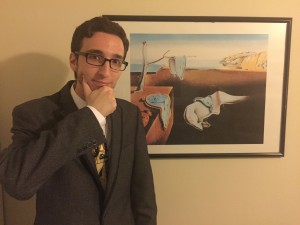
Fellow
An inspiration for the fellowship and summer soon became fellow Phi Beta Kappa, progressive President Theodore Roosevelt. These words, “Believe you can and you’re halfway there,” were some of the few that were being vetted by Venn Strategies, a public affairs and government relations firm, and fellowship site, for their new office. Before coming to D.C. for the summer, I watched a few episodes of The Roosevelts documentary series, and was familiar with TR’s can-do attitude.
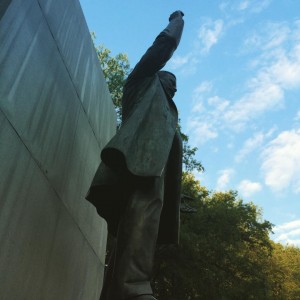
I also have a can-do attitude along with a positive attitude. Using these attitudes, and the teachings of my political science professors, Amy Atchison, Larry Baas, Jennifer Hora, James Old, and Gregg Johnson, and history professors, Ronald Rittgers and Heath Carter, has helped me as a Fellow.
As a Fellow, I have been able to complete seventy-nine tasks, projects, and reports, so far for the fellowship. I have been a resource in inputting information, findings, and statistics into Word Documents. I have been an organizer in making hundreds of Team Leader, Participant, and Hill Staffer folders. I have been an arranger in creating four Excel spreadsheets of Labor, Pensions, Finance, and Tax staffers for the Ways & Means, HELP, and Finance House and Senate Committees. I have been a researcher in doing research on businesses, companies, and corporations, along with legislation and advocating that was done. I have been a summarizer in summarizing amendments that were brought up during a seven hour long Appropriations Committee meeting, as well as what was said while attending a 7:30 A.M. Morning Money event on the economy with former Vice-Presidential candidate and current House Ways & Means Chairman, Representative Paul Ryan.
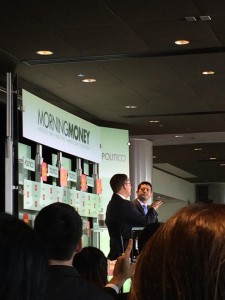
Future
As a Fellow, I have also thought about the future. When I think about the future, I think about time. And as I think about time, I think about one of the quotes from the book that has been given to all of the fellows, and although it was not required to do so, I read the 457 page book, The Impossible Will Take A Little While: Perseverance and Hope in Troubled Times, in a month. A quote from Martin Luther King, Jr. in a “Letter from Birmingham Jail” is illustrative. “We must use time creatively, and forever realize that the time is always ripe to do right.” My time here in Washington, D.C. is about finding my calling and purpose, and what I have found is that my calling is to make an impact and my purpose is to make the world a better place.
And as us fellows have reflected in our first Google Hangout, our future is filled with questions. These questions are important because they will help us think about what we want from the future and how this will allow us to maximize our calling and purpose.
When I think about the future, I think about what my life will look like. When will I have a house? When will I have a home? When will I get married? When will I have children? When will I have grandchildren?
When I think about the future, I also think about what my jobs will look like. Will I become a Professor? Will I become a Congressman? Will I become a Senator? Will I become President?
Time will tell.
Read more about Alex Uryga on his website, www.alexuryga.com.
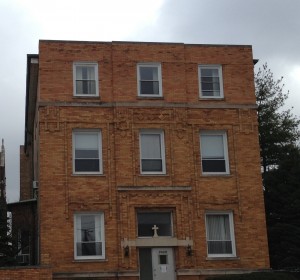
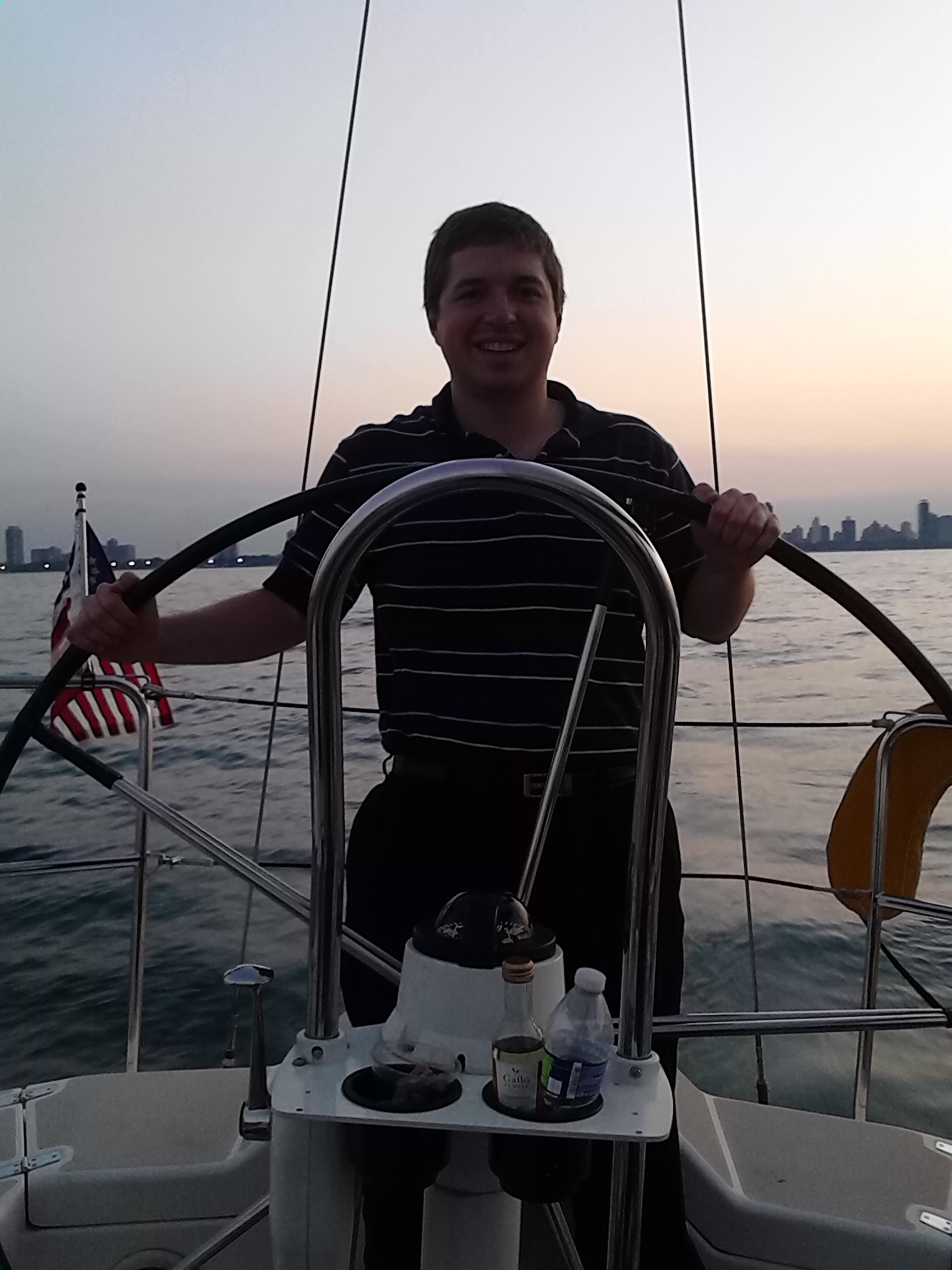
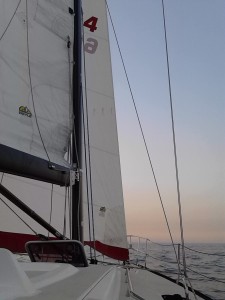


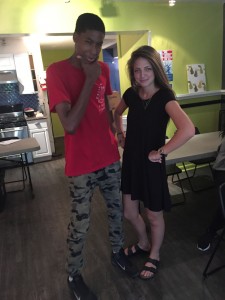
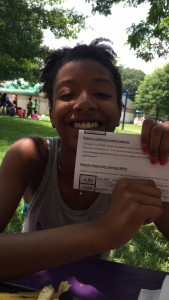
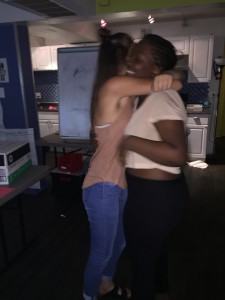
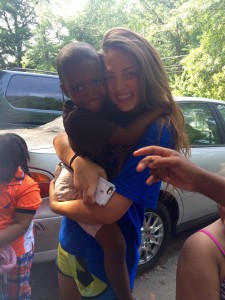
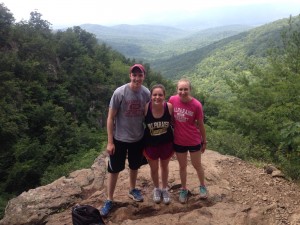 portance and worth than the résumé virtues. Yet, I know that I focus more time on my résumé virtues and developing those than my eulogy virtues. I also believe our education system and society put a greater emphasis on those résumé virtues.
portance and worth than the résumé virtues. Yet, I know that I focus more time on my résumé virtues and developing those than my eulogy virtues. I also believe our education system and society put a greater emphasis on those résumé virtues.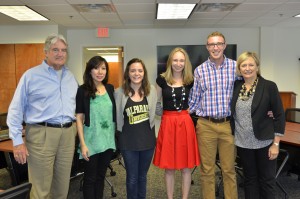 e tone in which it was said, still resonated with me. Throughout our summer in Rockville we were treated to numerous meals, a Nationals baseball game, we were taken sailing on the Potomac River, the CFO took three hours out of his day to speak to us about accounting and finance, we witnessed a board meeting, and more importantly than all of those events, we worked everyday with people that were always ready and willing to humbly share their wisdom. Of course they went above and beyond.
e tone in which it was said, still resonated with me. Throughout our summer in Rockville we were treated to numerous meals, a Nationals baseball game, we were taken sailing on the Potomac River, the CFO took three hours out of his day to speak to us about accounting and finance, we witnessed a board meeting, and more importantly than all of those events, we worked everyday with people that were always ready and willing to humbly share their wisdom. Of course they went above and beyond.